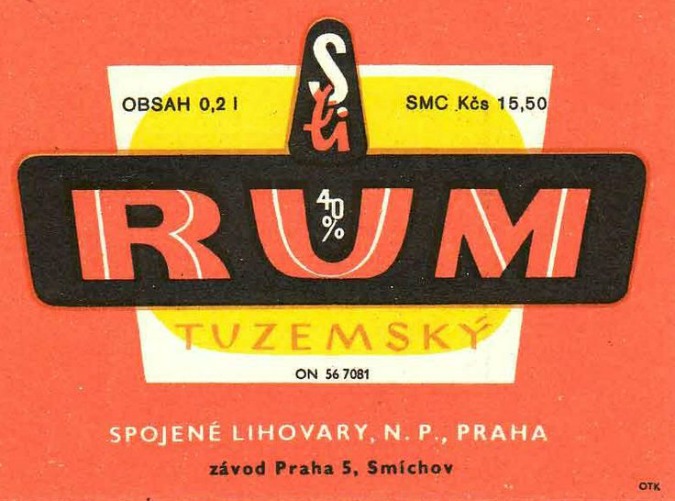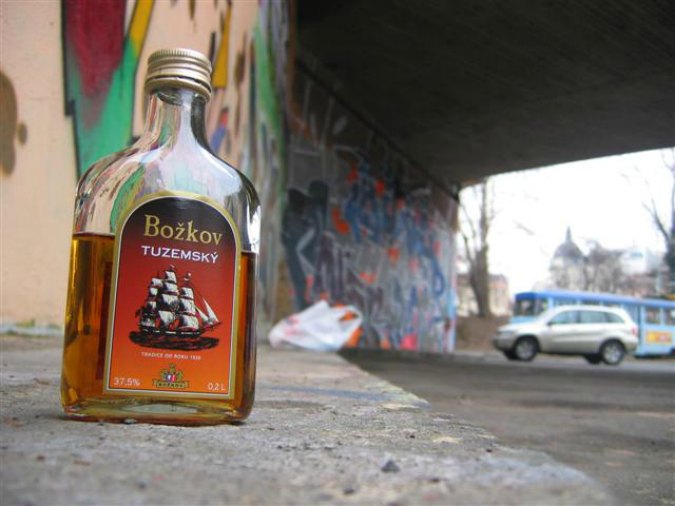Tuzemák “rum” the distinctly scented and dirt cheap Czech spirit preferred by holiday bakers and bums, has once again come under scrutiny from the EU.
The common Czech tipple also used to spice up hot wine and tea, may contain a dangerous ingredient says the European Food Safety Authority.
PARTNER ARTICLE
The authority’s findings say that the liquor’s artificial aroma could contain carcinogenic, cancer-causing agents.
The traditional Czech spirit accounts for a quarter of all alcohol sold annually in the Czech lands; in 2003 the domestic rum, which is made from potatoes, not sugar cane, was forced to change its name to tuzemák (which simply means “domestic” in Czech).

When it was still called rum / Image: Pinterest
Tuzemák, or tuzemský rum, was brought to the crown lands of the Austro-Hungarian monarchy in the 19th century when the empire, with no access to tropical colonies, created its own Inländer-Rum from potatoes or sugar beets, diluted and flavored by various rum essences.
Also called Stroh in Austria, where today it is produced from sugarcane molasses and therefore considered a genuine spiced rum, Domači in Slovenia or Čajni in Croatia.
The European Commission plans to address the studies to determine whether the substance possesses a large enough danger to be banned in the EU.

In its natural habitat / Photo: Flickr
The Czech Republic isn’t the only country to use the rum essence in its products; other members states may also be facing recalls should it be determined that the rum flavoring is a health hazard.
Agriculture Minister Marian Jurečka has said he will defend Czech rum and hopes to explore further with the commission whether the popular spirit really poses a threat to consumers.
Given the current butter crisis, the news has left everyone wondering: What’s to become of Czech Christmas cookies this year? And maybe they should have accepted this deal after all…













 Reading time: 1 minute
Reading time: 1 minute 

























